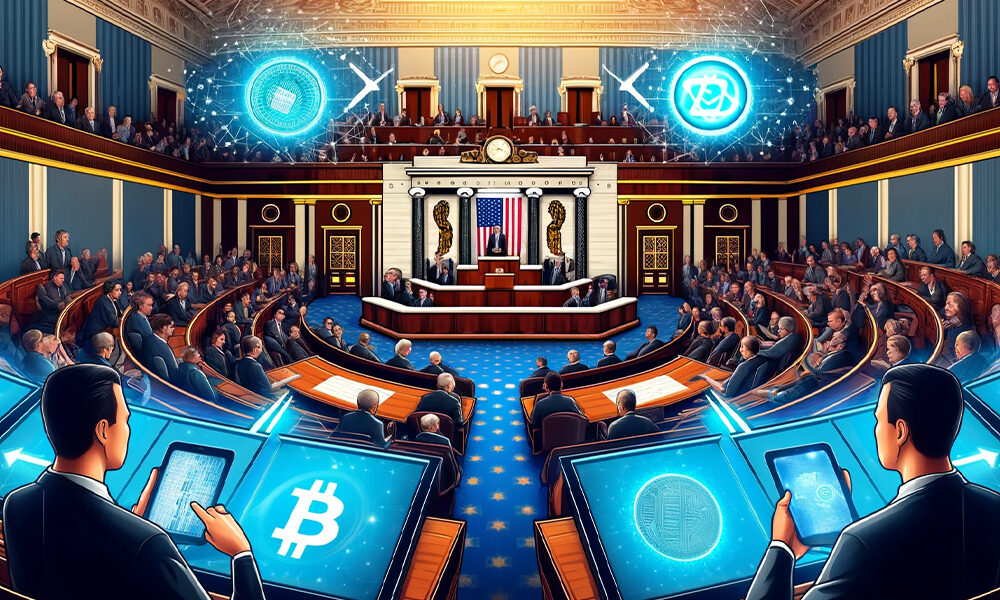Regulation
Senate to scrap unpopular SEC anti-crypto custody rule (SAB 121)

Today, Thursday, the Senate will vote on a resolution to repeal the Securities and Exchange Commission’s (SEC) controversial accounting guidelines, which critics say have blocked investment banks from offering crypto custody services -large-scale currencies. The move is expected to garner enough bipartisan support to pass, according to The Block.
Background of SAB 121
The resolution’s potential success is being hailed by various groups, including lawmakers, investment banks, crypto investors, and even some crypto skeptics, who generally agree on very little. They all argue that SEC Staff Accounting Bulletin 121, commonly known as SAB 121, should be revoked because it requires banks to treat crypto assets differently from other types of assets.
Sean Tuffy, a banking regulation expert and self-proclaimed crypto skeptic, finds the current rules for keeping cryptocurrencies excessive. He suggests that it is crucial to review how the custody of cryptocurrencies is regulated. To understand why SAB 121 is so controversial, it is essential to examine its impact on exchange-traded funds (ETFs).
ETF issuers typically pay custodians, often banks, to protect the assets underlying the funds. Large institutions like BNY Mellon, JPMorgan and State Street have large custody operations in the United States. However, none of these names are involved in spot Bitcoin ETFs. Instead, the funds’ prospectuses list Coinbase, Gemini, BitGo and Fidelity as custodians. This situation is at least in part due to SAB 121, which Tuffy describes as a “de facto crypto custody rule that really shut out custodians.”
The central problem of SAB 121
Published by the SEC in March 2022, SAB 121 advises entities that safeguard crypto assets on behalf of third parties to record those assets on their balance sheet as if they owned them. This requirement does not apply to traditional assets like stocks. Therefore, custodians, like other large banks, must hold capital reserves to offset risky balance sheet items to fund their positions in the event of default. This necessity is costly, as the capital held in reserve could otherwise be used to generate income.
Uncertainty over exactly how much banks should hold crypto assets and whether the SEC would enforce those guidelines has reportedly deterred major firms, including BNY Mellon, State Street and Nasdaq, from entering the crypto business. cryptographic custody. This hesitation is seen as problematic by lawmakers like Republican Mike Flood, who supports anti-SAB Resolution 121. He argues that excluding heavily regulated and experienced banks from the cryptocurrency custody business exposes investors’ assets to risk. a greater risk.
Tomorrow, the Senate will vote on repealing SAB-121.
This is perhaps the only thing the crypto and trading industries agree on.
First, to reiterate, SAB-121 is the rule that the SEC adopted unilaterally without consulting the industry and which says the following:
Unlike everyone…
–Austin Campbell (@CampbellJAustin) May 16, 2024
Concentration of conservation and market risks
One aspect of this risk is the concentration of spot ETFs underlying Bitcoin with a single provider. Coinbase manages custody of eight out of ten ETFs, representing approximately 90% of the Bitcoin contained in these funds. This situation highlights the tension between SAB 121 and SEC Chairman Gary Gensler’s position that existing regulations are sufficient to control crypto markets. Tuffy questions the need to create different custody rules for crypto if current regulations are adequate.
SAB 121 essentially transfers custody of Bitcoin ETFs to Coinbase, which is currently being sued by the SEC for violations of the Securities Act. Tuffy describes this as a confusing situation, illustrating how the SEC’s aggressive stance against crypto has created complications.
Concentration of conservation and market risks
Despite growing pressure to repeal SAB 121, Gensler appears reluctant to do so. He likely believes the guidance addresses risks identified by SEC staff in crypto markets, a position bolstered by significant losses from bankruptcies of crypto companies like FTX and Celsius. However, he faces considerable pressure to either rescind SAB 121 or allow public input into it.
The Government Accountability Office (GAO), the US Congress’ watchdog, said in October that SAB 121 functions as a rule and should be subject to the statutory public comment process. Additionally, influential trade associations such as the Securities Industry and Financial Markets Association have advocated for investment banks to be excluded from SAB 121.
Gensler, however, enjoys the support of US President Joe Biden. Biden indicated that he would veto Flood’s resolution if it passed the Senate, emphasizing that restricting the SEC’s ability to maintain a comprehensive and effective financial regulatory framework for crypto assets would result in significant financial instability and market uncertainty. The Senate’s upcoming vote on the resolution to repeal SAB 121 has sparked substantial debate. The outcome could have significant implications for the future of cryptocurrency custody and the broader regulatory landscape for crypto assets in the United States.
